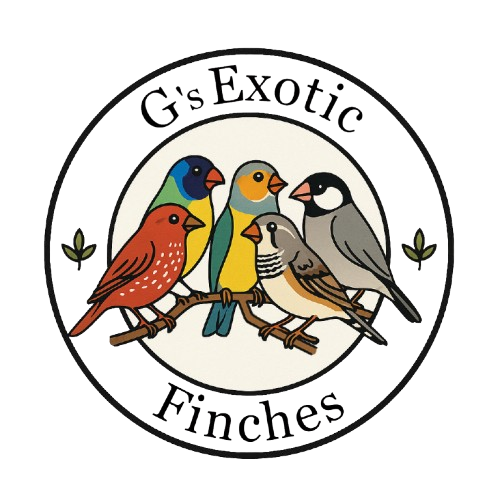The Face behind G’s Exotic Finches
Gilliandro Dacosta
For G, birds have never been just a business — they’ve been a lifelong passion. Growing up in Milford, MA, he was surrounded by a family that loved and cared for birds, especially his grandfather who first introduced him to the joy of aviculture. Over the years, that spark turned into a calling. Working alongside his father and later on his own, G gained more than 10 years of hands-on experience breeding and caring for finches.
Curious about what goes into raising healthy, happy finches? From daily feeding routines to specialized supplements and careful breeding practices, our commitment shows in every step.
-

Daily Care & Feeding
Early mornings begin with cleaning cages, refreshing food, and checking every bird’s health.
Balanced nutrition includes premium seed mixes, soft vegetables (like broccoli, lettuce, and carrots), protein-rich egg food, mealworms, and crushed eggshells for calcium.
Cuttlebones are kept in every cage year-round for beak health and calcium support.
Temperature and humidity are carefully maintained at 70–78°F and 40–55% humidity for comfort and health.
-

Health & Supplements
S76 & Scatt: Used before and after breeding season to prevent mites, worms, and lice.
Soluvite D: Twice a week during nesting to ease stress and support young chicks.
Calcivet + eggshell grit: Provides extra calcium reserves for breeding pairs.
Enrofloxacin (light doses): Every 3 months to support bacterial control and treat illness.
NutriBird: Ensures mothers regain strength after feeding young.
-

Breeding Season
Runs October through April/May.
Birds are tracked with ID bands to ensure healthy pairings.
Careful monitoring of diet, supplements, and environment supports both parents and chicks throughout the season.
Breeding pairs are matched responsibly to maintain strong bloodlines and avoid stress on the birds.
Focus is on conservation, ethical breeding, and raising strong, healthy chicks.
